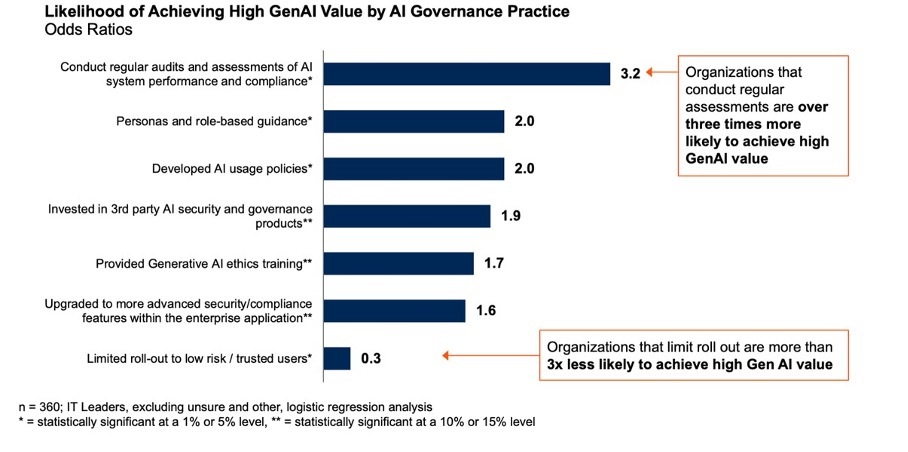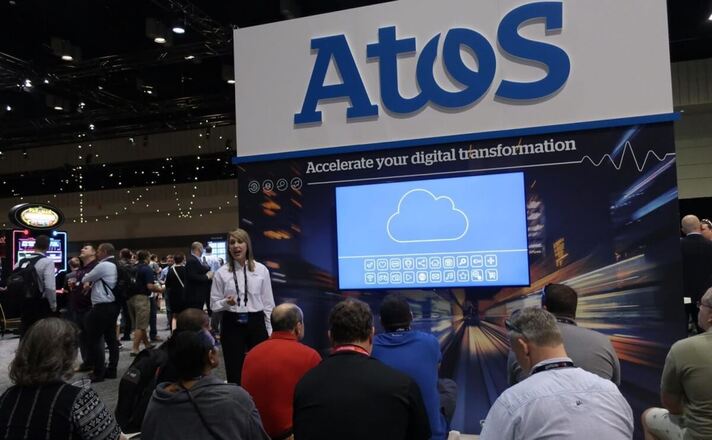Enterprises that consistently audit and evaluate their artificial intelligence (AI) systems are over three times more likely to derive substantial business value from generative AI (GenAI) compared to those that don’t, according to a new global survey by Gartner.
The research, conducted between May and June 2025, surveyed 360 business and technology leaders from organizations with at least 250 full-time employees across North America, Europe, and Asia-Pacific. Excluding IT software firms, the study highlights how consistent governance practices are emerging as a key differentiator in turning AI experimentation into tangible business results.
“AI governance really is a case of doing well by doing good,” said Kjell Carlsson, VP Analyst at Gartner. “But the degree of value gained depends on the governance practice. Some practices simply manage risk or ensure compliance, while others actively enhance the business impact of GenAI initiatives.”
Gartner’s analysis found that organizations adopting structured AI governance frameworks—such as regular system assessments, policy enforcement, and targeted employee training—were significantly more likely to see measurable GenAI-driven returns.
AI Governance Platform Usage
Companies that conduct ongoing audits of AI system performance and compliance show the highest correlation with GenAI success. Regular evaluations enable early detection of bias, drift, and ethical concerns, allowing leaders to refine systems before reputational or regulatory risks escalate. Gartner recommends using dedicated AI governance platforms to automate assessments, streamline auditing, and support remediation.
Training and guidance also play a pivotal role. Businesses providing role-based AI training are twice as likely to report strong GenAI outcomes, while those offering ethics-focused programs improve their odds by 1.7 times. Gartner notes that embedding AI literacy across departments strengthens adoption and ensures alignment between technology and strategy.
Implementing AI-specific usage policies and investing in governance features further boost performance. Enterprises that allocate budget to third-party governance products are nearly twice as likely to gain higher value from their GenAI systems.
Perhaps most notably, companies expanding GenAI deployments beyond small, low-risk teams are 3.3 times more likely to achieve significant business value. Gartner’s findings suggest that cautious scaling—combined with strong oversight—allows organizations to innovate safely while maximizing AI’s potential.
For enterprises eager to unlock sustainable AI impact, the message is clear: governance is not merely a compliance exercise. It’s an enabler of measurable business value.
- story continues below the image –
FAQ: Building and Managing GenAI Infrastructure
What is GenAI infrastructure?
GenAI infrastructure refers to the hardware, software, and data systems that support the development, training, and deployment of generative AI models. It includes high-performance servers, GPUs, networking, storage, and governance frameworks to manage data and model operations securely and efficiently.
Why does GenAI require specialized infrastructure?
Generative AI workloads—such as large language models and deep learning systems—demand massive computational power and data throughput. Standard IT environments often lack the scalability and parallel processing capacity needed, making purpose-built infrastructure essential for performance, reliability, and cost efficiency.
How can organizations ensure GenAI infrastructure remains secure?
Security relies on multi-layered controls: data encryption, role-based access, continuous monitoring, and compliance audits. Implementing AI governance frameworks also helps mitigate ethical and regulatory risks, especially when handling sensitive or proprietary data.
What role do GPUs and accelerators play in GenAI performance?
GPUs, TPUs, and other accelerators enable the parallel processing required for training and inference. They dramatically reduce processing times and energy use compared to traditional CPUs, making them the backbone of modern GenAI computing.
How should businesses plan for future GenAI infrastructure needs?
Enterprises should adopt scalable, modular architectures that can integrate new hardware and software as AI models evolve. Partnering with vendors offering flexible compute options, hybrid cloud integration, and sustainability-focused designs ensures readiness for tomorrow’s GenAI demands.






